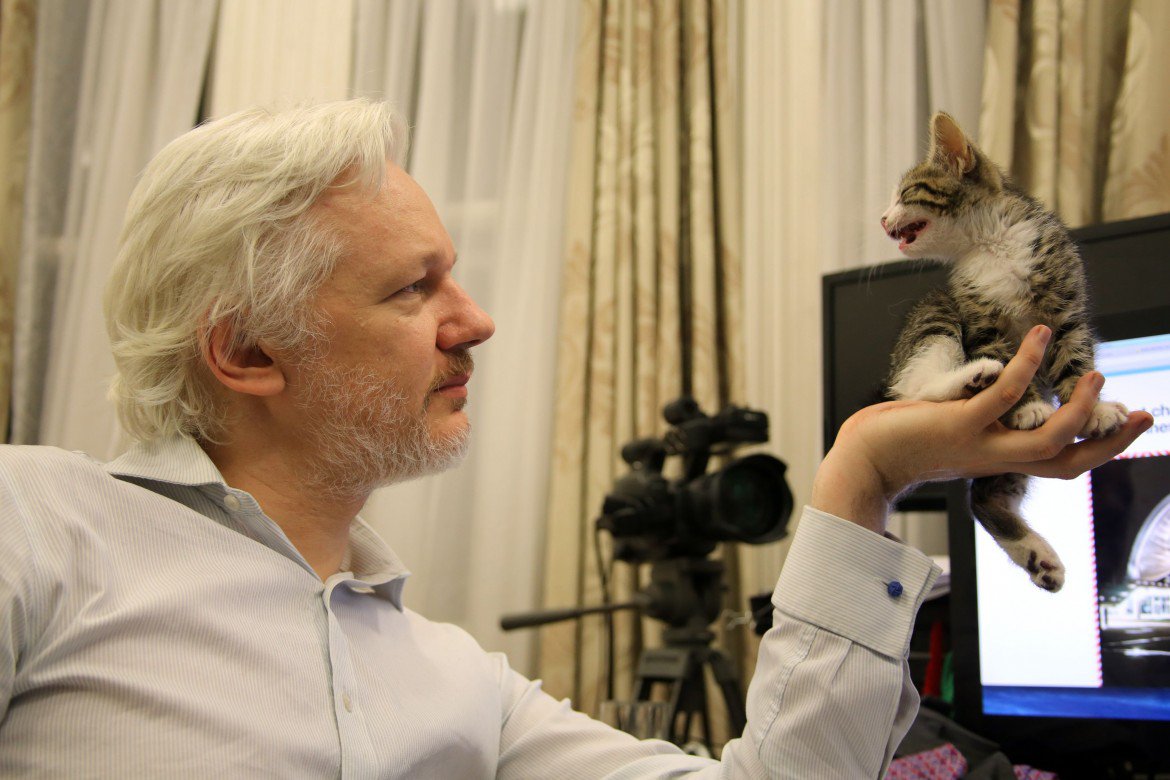Commentary
New York Times vs. Assange: a pre-election Cold War
The New York Times has launched an unsubstantiated attack on Julian Assange, accusing him of aiding Russia, in a bizarre reprisal of Cold War logic.

The New York Times has published a lengthy report on WikiLeaks claiming that the material disclosed by the site hurts the United States and, in fact, favors Russia. Not only because it is hinted, without evidence, that the recent material published by WikiLeaks during the Democratic convention raising serious doubts about Hillary Clinton has been supplied by Russian intelligence.
Julian Assange, quoted in the Times, via Facebook, said Russia is not a global player like China and the United States, and that in any case corruption of the Kremlin is an old story. “Every man and his dog is criticizing Russia,” he said. “It’s a bit boring, isn’t it?” Meanwhile Clinton and the Democrats were “whipping up a neo-McCarthyist hysteria about Russia,” stressing that WikiLeaks does not target countries and only works to make sure information is available to the public.
On the issue some caveats are necessary. The first two have to do with WikiLeaks’ methods. Certainly the journalists of the Times know well how it works, but in the report they pretend not to: WikiLeaks publishes only material that’s verified and real. No rumors (or lies, such as the false grounds on which the U.S. went to war in Iraq, published in The New York Times) but only true, authentic, complete material. We’re talking about original files.
Second, the full publication of the material that comes in puts the “supplier in the background.” What matters is what is contained in the file and its verifiability. Finally, one cannot fail to mention in this whole affair the historical relationship between the Times and WikiLeaks. In 2010, recalls Stefania Maurizi in Espresso, when 76,000 secret files were published on the conflict in Afghanistan, the Afghan War Logs, “the then director of the world’s most powerful newspaper said that nine days before coming out with what it called one of the biggest scoops of the last 30 years, the Times’ Washington bureau chief, Dean Baquet, warned the White House.”
Articles about it came out, but “in other words, the largest and most powerful newspaper in the world published the U.S. diplomatic cables under U.S. government oversight.” Baquet is now the paper’s executive editor, and the relationship between WikiLeaks and The New York Times are still complicated.
And the U.S. election pitting Clinton (Secretary of State during the cable leaks) against Donald Trump has perhaps rekindled this comparison, especially in light of Assange’s promise that new material was on its way. The soon-to-be-released documents could complicate more than just Clinton’s bid for the White House. The newspaper’s attack on WikiLeaks is preposterous and unsubstantiated, based on unproven suspicions recalling a Cold War logic that seemed forgotten. It’s never mentioned, but it seems as though the reporters were describing Wikileaks as a kind of “fifth column” of Moscow.
On the “Russian question” then you have to remember that WikiLeaks has published the “Syria files” in which neither Bashar al-Assad nor Vladimir Putin come off as great statesmen. Putin does not come out well in the diplomatic cables, either, which form material relevant to contemporary historiography.
It should ultimately be called something else, as pointed out by Glenn Greenwald, the author along with whistleblower Edward Snowden of the Datagate. Greenwald reminded The New York Times that the publication of the “Pentagon Papers” (which won it the Pulitzer Prize), paradoxically, ended up favoring Russia. Greenwald has gone further, tweeting his own “scoop.”
“Sources say NYT editors and reporters probably have no direct ties to ISIS and Al Qaeda, but much of what they publish directly helps them,” he wrote.
Originally published at http://ilmanifesto.info/new-york-times-vs-assange-guerra-fredda-pre-elettorale/ on 2016-09-02
